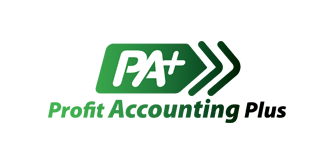You are in college and it is the summer. You decide to paint houses to make a little pocket money. A neighbor of yours is interested. You look at his house and then figure out the cost of the paint will be $500. Would you charge him $500 to paint the house?
Please say no.
The answer is no.
Sophia is a friend of mine. She doesn’t paint houses. And she graduated college a long time ago. She recently opened up a little café located in a corporate center that provides breakfast and lunch. “We have a lot of really nice customers,” she told me. “I’m really happy with how things are going.”
Unfortunately, I don’t think her happiness will last very long.
When I looked at Sophia’s books, here’s what I found: She certainly had customers from the breakfast and lunch crowd coming in. She was paying about thirty cents on the dollar for food, which isn’t bad. The rest was covering her rent and employment expenses. But when the smoke cleared each month, one thing was missing: Sophia! There was nothing left to pay her. She’s the owner, and her café is only bringing in enough to support her employees and vendors. This is not a business— it’s a charity. This is like painting your neighbor’s house and only charging for the paint. There’s only one charity that should be getting Sophia’s money every week. And that charity is Sophia.
Is Sophia starving? No – she’s just living off the salary her husband makes from his corporate job. But if she’s not making any money from her business, then she’s wasting money – money she could be earning doing something more profitable somewhere else. Sure, Amazon and Google and all those other tech firms in Silicon Valley can drum up millions of dollars of losses in the pursuit of building “value” for their “brand.” They’ve got deep-pocketed investors to support them.
But not Sophia.
How much should Sophia charge for a tuna salad sandwich? The answer, of course, partly depends on what the market will bear. Office workers probably aren’t going to pay $20 for a tuna sandwich, no matter how good it is. But other factors go into that price. The cost of tuna. The cost of the roll. And the lettuce, tomato and relish (tuna salad is delicious with a just a hint of relish). But of course those are not the only costs. Each sandwich that Sophia makes incurs overhead – a little bit of rent, the lights, the heat, the salaries of her employees. How can anyone figure out how much to charge for a tuna salad sandwich without knowing all of these costs? Smart business owners don’t just pull their prices from the air. They always start with the final, absolute cost of a product and then apply a mark-up for profit.
And yet, Sophia is ignoring one of the biggest items that make up the cost of a tuna sandwich: That would be Sophia!
So let’s put the market aside for a second and focus on the cost. If, after figuring in the costs for a normal salary, benefits and a profit margin, the price of a sandwich needs to be $1 higher, then she needs to be charging $1 more. Period.
What happens if, after figuring out the cost it turns out that she’ll need to charge $20 for a tuna sandwich? Well, it better be one damn good sandwich (just a reminder – relish will help). Otherwise, Sophia shouldn’t be selling tuna sandwiches. And if all her other sandwiches start coming in at much higher prices after considering her salary she might have to make some other, much harder decisions. Taking a lower salary should be her last choice, by the way. But wouldn’t you rather make these decisions now, before you’ve lost too much money?
Unfortunately, Sophia is not working with all the facts. She’s working on hope. She’s hoping that the business will grow so that it can afford her. Or that by some miracle, profits will rain down from the sky. But successful business people don’t work on hope. They work off of data. They buy for a dollar and sell for three. They don’t wildly gamble. They look coldly at the information, no matter how good or bad, and place educated bets. They are honest with themselves. And Sophia’s not being honest by excluding her salary from the overhead. If you’re not paying yourself, then you’re not working with all of the information you need to place those educated bets. You’re basically painting your neighbor’s house for free.
